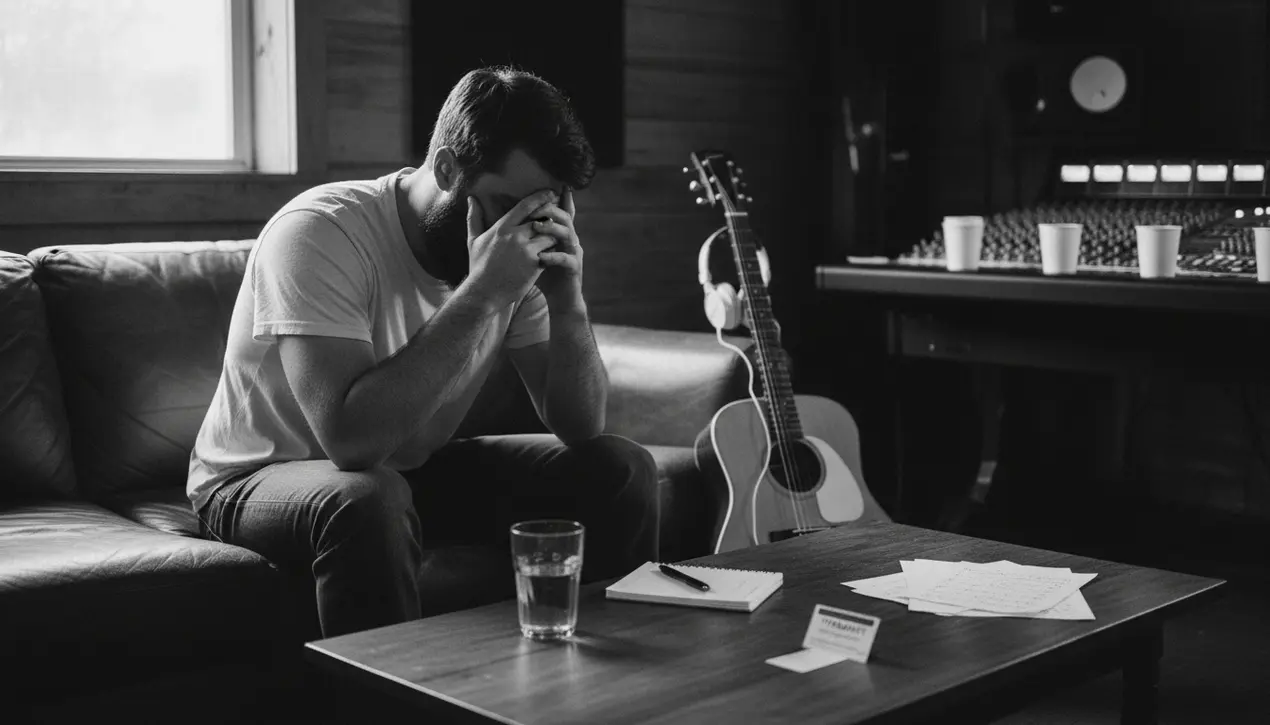
Entertainmentcelebrities
Zach Bryan Opens Up About Sobriety and Therapy After Panic Attacks
BR
Brian Miller
1 hour ago7 min read
In a raw, soul-baring moment that felt more like a hidden track than a public statement, singer-songwriter Zach Bryan recently pulled back the curtain on the profound personal struggles happening just offstage, revealing a period of 'earth-shattering panic attacks' that led him to embrace sobriety and therapy. This isn't just another celebrity wellness platitude; it’s a haunting verse in the ongoing ballad of an artist grappling with the dizzying speed of fame, a narrative that resonates with the kind of gritty, authentic pain that has always fueled the best country and folk music, from Johnny Cash’s battles to Jason Isbell’s own well-documented journey to sobriety.Bryan’s confession, emerging from the digital cacophony of online controversy, underscores a critical, often-ignored dissonance in modern artistry: the platform that amplifies your voice can also become the very source of the noise that shatters your peace, a cruel irony for a troubadour whose lyrics are celebrated for their unvarnished honesty. The decision to step away from the bottle and into a therapist's office is a courageous pivot, a deliberate chord change in the composition of his life, moving from a path well-trodden by self-destructive legends toward a newer, more sustainable model of creative endurance.One can’t help but draw parallels to the folk heroes of yore, artists like Phil Ochs or even Kurt Cobain, who were ultimately consumed by the pressures they chronicled, a fate that Bryan seems determined to avoid by proactively tuning his own instrument—his mental health. This move speaks volumes to his generation of fans, offering a more nuanced, strength-based archetype than the 'tortured artist' trope, suggesting that the real rebellion isn't in burning out, but in learning to build a fire that lasts.The broader music industry, particularly the Nashville machine and the relentless treadmill of touring, has long been a petri dish for such crises, where the constant scrutiny and performative demands can turn a passion into a prison. By speaking out, Bryan adds his voice to a growing chorus—including contemporaries like Kelsea Ballerini and Chris Stapleton, who’ve spoken about their own anxieties—that is slowly destigmatizing mental health care in a culture that has traditionally valorized stoicism.The consequences of his journey extend far beyond his own well-being; it recalibrates the relationship with his audience, fostering a deeper, more authentic connection built on shared vulnerability rather than an unattainable, heroic image. It’s a testament to the idea that the most powerful songs aren’t just written; they are lived, and sometimes the most important work happens not in the studio under the bright lights, but in the quiet, determined space of a therapist's office, where an artist learns to silence the noise and finally hear his own melody again.
#featured
#Zach Bryan
#sobriety
#therapy
#panic attacks
#mental health
#celebrity news
Stay Informed. Act Smarter.
Get weekly highlights, major headlines, and expert insights — then put your knowledge to work in our live prediction markets.
Related News
Comments
Loading comments...
© 2025 Outpoll Service LTD. All rights reserved.